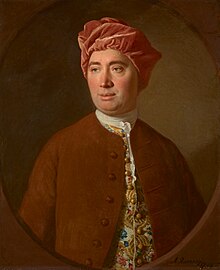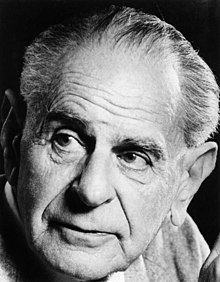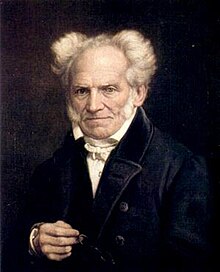
Philosophers of logic
Philosophy of logic is the area of philosophy that studies the scope and nature of logic. It investigates the philosophical problems raised by logic, such as the presuppositions often implicitly at work in theories of logic and in their application.
8 episodes
Episodes in this category also belong to the following categories:
Al-Kindi
Melvyn Bragg and his guests discuss the life and work of Al-Kindi, often described as the first philosopher in the Arabic tradition.
28 June 2012
Featuring: Hugh Kennedy, James Montgomery, Amira Bennison
PhilosophyEpistemologistsPhilosophers of logicAristotelian philosophersArabic-language commentators on AristotleAlchemists of the medieval Islamic worldIslamic philosophersPhilosophers of educationPhilosophers of psychologyPhilosophers of art9th-century philosophersPhilosophers of mathematicsIntellectual historyOntologistsMetaphysiciansPhilosophers of religionAstronomers of the medieval Islamic worldPhilosophers of scienceMusic theorists of the medieval Islamic worldMetaphysics writersAverroes
Melvyn Bragg discusses the philosopher Averroes who worked to reconcile the theology of Islam with the rationality of Aristotle, achieving both fame and infamy.
5 October 2006
Featuring: Amira Bennison, Peter Adamson, Anthony Kenny
PhilosophyEpistemologistsCritics of atheismPhilosophers of literaturePhilosophers of logicLogiciansSocial philosophersAristotelian philosophersArabic-language commentators on AristotleCritics of deismPhilosophers of culturePhilosophers of languageIslamic philosophersPhilosophers of psychologyPhilosophers from al-AndalusOntologistsPhilosophers of mindPolitical philosophersPhilosophers of religionPeople from Córdoba, Spain12th-century Muslim theologiansPhilosophers of sciencePhilosophers of historyCritics of ChristianityAvicenna
Melvyn Bragg and guests discuss Avicenna, among the most important philosophers in the history of Islam.
8 November 2007
Featuring: Peter Adamson, Amira Bennison, Nader El-Bizri
PhilosophyPhilosophers of logicEpistemologistsLogiciansCourt physiciansCritics of atheismIslamic philosophersPhilosophers of religionPhilosophers of psychologyIranian ethicists, Iranian logiciansPhilosophers of mathematicsPhilosophers of scienceAristotelian philosophersMusic theorists of the medieval Islamic worldAlchemists of the medieval Islamic worldMedieval Iranian pharmacologists, Transoxanian Islamic scholarsOntologistsPhilosophers of mindClassical humanistsDavid Hume
Melvyn Bragg and his guests discuss the work of David Hume, the philosopher and leading figure of the Scottish Enlightenment.
6 October 2011
Featuring: Peter Millican, Helen Beebee, James Harris
PhilosophyCriticism of rationalismEpistemologistsAction theorists18th-century British essayistsMetaphilosophersSkeptic philosophersPhilosophers of social scienceTheorists on Western civilizationPhilosophers of logicSecular humanistsSocial philosophersPhilosophy writersPhilosophers of economicsWriters about religion and sciencePhilosophers of identityBritish philosophers of educationVirtue ethicistsBritish male non-fiction writers18th-century British philosophersPhilosophers of psychologyPhilosophers of artCritics of the Catholic ChurchBritish critics of religionsPhilosophers of mathematicsAlumni of the University of EdinburghConservatismEmpiricistsOntologistsPhilosophers of mindDeist philosophersPeople of the Scottish EnlightenmentPhilosophers of religionFreethought writersBritish consciousness researchers and theoristsEnlightenment philosophersWriters about activism and social changePhilosophers of sciencePhilosophers of historyBritish male essayistsKant's Copernican Revolution
Melvyn Bragg and guests discuss Kant's ideas on how the world depends on us, on the limits of human knowledge and why we are bound to ask questions we cannot answer.
3 June 2021
Featuring: Fiona Hughes, Anil Gomes, John Callanan
PhilosophyGerman philosophers of artNatural law ethicistsGerman philosophers of scienceGerman political philosophersMetaphilosophersPhilosophers of social sciencePhilosophers of warGerman Lutherans18th-century philosophersTheoretical historiansGerman nationalists19th-century German philosophersTheorists on Western civilizationPhilosophers of literatureGerman idealistsAge of EnlightenmentPhilosophers of logicLogiciansPhilosophers of lawPhilosophers of sexuality18th-century German writersPhilosophy writersRationalists18th-century German male writersKantianismGerman philosophers of mind, German philosophers of religionWriters about religion and science18th-century German philosophers, 18th-century essayists19th-century German male writers19th-century Prussian peopleHumor researchersGerman philosophers of culture19th-century German essayistsPeople of the Age of EnlightenmentGerman agnosticsGerman male essayistsOntologistsGerman ethicists, German philosophers of educationLecturersMembers of the Prussian Academy of SciencesIdealistsNatural philosophersEnlightenment philosophersGerman epistemologistsWriters about activism and social change19th-century German non-fiction writersGerman philosophers of historyGerman male non-fiction writersGerman logicians, Kantian philosophersPopper
Melvyn Bragg discusses the philosopher Karl Popper, author of The Open Society and a seminal thinker about science.
8 February 2007
Featuring: John Worrall, Anthony O'Hear, Nancy Cartwright
PhilosophyBritish political philosophersEpistemologistsCambridge University Moral Sciences ClubForeign associates of the National Academy of SciencesTheorists on Western civilizationBritish ethicistsPhilosophers of logicKnights BachelorLogiciansPresidents of the Aristotelian SocietySocial philosophersPhilosophers of technologyRationalistsAristotelian philosophersPhilosophers of economicsWriters about religion and scienceWriters about globalizationBritish philosophers of educationBritish social liberalsRecipients of the Austrian Decoration for Science and ArtBritish male non-fiction writersPhilosophers of culturePhilosophers of mathematicsBritish historians of philosophyJewish agnosticsAcademics of the London School of Economics, British philosophers of scienceCritics of religions20th-century British philosophers20th-century Austrian philosophers, Austrian agnostics, Austrian essayists, Austrian logicians, British agnostics, British logicians, British people of Austrian-Jewish descent, Naturalised citizens of the United Kingdom, Writers from ViennaOntologistsPhilosophers of mindRecipients of the Pour le Mérite (civil class)MetaphysiciansJewish philosophersPolitical philosophersPhilosophers of religionBritish consciousness researchers and theoristsJewish ethicistsMembers of the Order of the Companions of HonourWriters about activism and social change20th-century British essayistsCritics of MarxismPhilosophers of historyFellows of the British AcademyMetaphysics writersBritish male essayistsSchopenhauer
Melvyn Bragg and guests discuss the pessimistic philosophy of Arthur Schopenhauer and his extraordinary influence.
29 October 2009
Featuring: A. C. Grayling, Beatrice Han-Pile, Christopher Janaway
PhilosophyGerman philosophers of artGerman philosophers of scienceGerman political philosophers19th-century German writersMetaphilosophersGerman eugenicists19th-century German philosophersTheorists on Western civilizationSimple living advocatesPhilosophers of literatureGerman idealistsPhilosophers of logicLogiciansPhenomenologistsPhilosophy writersCritical theoristsGerman philosophers of mind, German philosophers of religionAcademic staff of the Humboldt University of Berlin19th-century German male writersAphoristsGerman philosophers of languagePhilosophers of psychologyUniversity of Göttingen alumniGerman critics of ChristianityGerman philologistsGerman philosophers of culture19th-century German essayists19th-century atheistsCritics of religionsAtheist philosophersGerman male essayistsCritics of JudaismOntologistsPhilosophers of loveGerman writers on atheismGerman ethicists, German philosophers of educationGerman monarchistsPhilosophers of pessimismGerman epistemologistsAnti-natalistsGerman philosophers of historyGerman male non-fiction writersGerman logicians, Kantian philosophersWittgenstein
Melvyn Bragg discusses how Ludwig Wittgenstein, one of the greatest philosophers of the modern age has influenced contemporary culture with his ideas on language.
4 December 2003
Featuring: Ray Monk, Barry Smith, Marie McGinn
PhilosophyEpistemologistsCambridge University Moral Sciences ClubMetaphilosophersPhilosophers of social scienceTheorists on Western civilizationWittgensteinian philosophersPhilosophers of logicAnalytic philosophersPeople with post-traumatic stress disorderBisexual male writersSocial philosophersPhilosophy writersOrdinary language philosophyFellows of Trinity College, CambridgePhilosophers of culturePhilosophers of languageLGBTQ mathematicians, LGBTQ philosophersPhilosophers of artBertrand Russell Professors of PhilosophyPhilosophers of mathematicsJewish agnostics20th-century British philosophersAlumni of Trinity College, CambridgeLinguistic turnOntologistsPhilosophers of mindAustrian people of Jewish descent, Austro-Hungarian military personnel of World War I20th-century Austrian philosophers, Austrian agnostics, Austrian essayists, Austrian logicians, British agnostics, British logicians, British people of Austrian-Jewish descent, Naturalised citizens of the United Kingdom, Writers from ViennaMetaphysiciansJewish philosophersBisexual military personnel20th-century British essayists20th-century British non-fiction writersBritish male essayists







